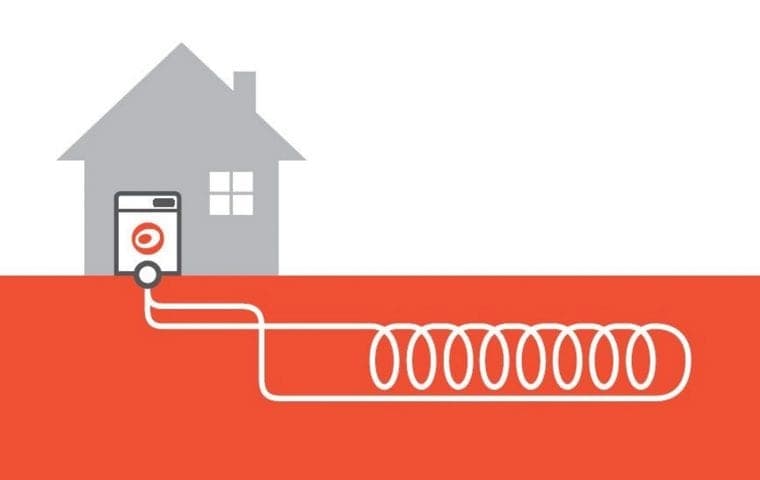Plug Your Surplus Power Into New Business Opportunities
- Public and Commercial
- 2 min read
With the help of ground source heat pumps, you can convert the electricity generated by on-site renewable technologies – such as hydro, wind and solar photovoltaics (PV) – into valuable sustainable heat that can be directed towards lucrative new commercial enterprises. And you’ll get paid by the government to do it!
Many rural landowners generating surplus clean power through ‘behind-the-meter’ renewable electricity schemes are missing out on profits by exporting this electricity back into the grid.
The Smart Export Guarantee (SEG), replacing the feed-in tariff (FIT) as of early 2020, may not be as lucrative as potential purchasers would have hoped, with no floor price being set beyond companies having to pay more than 0p, creating uncertainty over payback.
And with the National Grid at capacity across much of the UK, the option for battery storage exports are diminishing, with some areas under strict embargoes prohibiting paid battery storage schemes, whilst battery storage for private use is an expensive option with no subsidy support available.
However, rather than seeing this as ‘lights out’ for renewable electricity generation opportunities, Kensa is encouraging rural landowners to consider that ground source heat pumps can turn this excess electricity into useful, renewable heat. You can use this to diversify your business, as well as further reducing your energy bills and emissions.
Ground source is a switched-on solution
Ground source heat pumps are electrically powered devices that harness the natural heat energy freely available from ground or water sources and upgrade this to provide 100% sustainably sourced and renewably produced heating and hot water. The technology  A ground source heat pump can deliver 3 to 4 kilowatts (kW) of heat for every 1 kW of electricity it consumes.What is the Efficiency of a Heat Pump?delivers three times more energy than it uses and can provide low-cost and efficient heating to everything from farmhouses and holiday cottages, to animal enclosures and storage facilities.
A ground source heat pump can deliver 3 to 4 kilowatts (kW) of heat for every 1 kW of electricity it consumes.What is the Efficiency of a Heat Pump?delivers three times more energy than it uses and can provide low-cost and efficient heating to everything from farmhouses and holiday cottages, to animal enclosures and storage facilities.
Kensa is seeing many entrepreneurial landowners with existing on-site generation schemes investing in ground source heat pumps and directing the heat into a variety of income-generating activities, such as commercial drying processes, producing fertiliser from animal waste or rock salt for crisps, or for keeping greenhouses at an ambient temperature.
A double win for East Shaftoe Farm
For example, one arable farm in Northumberland replaced an old oil boiler with a cascaded ground source heat pump system to provide heating to a farmhouse and outbuildings at a much lower cost, whilst also receiving 20 years’ worth of quarterly payments from government funding.
By integrating the ground source heat pump system with the wind turbine and solar panels already on site, 100% of the farm’s energy needs are now supplied by renewable technologies. The owners have also directed some of the heat energy into a hydroponics system, allowing them to effectively diversify their business by creating a new, future-proofed income stream.  East Shaftoe FarmCase StudyRead the case study here.
East Shaftoe FarmCase StudyRead the case study here.


